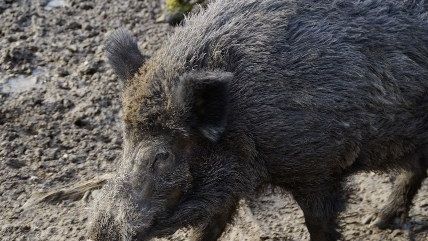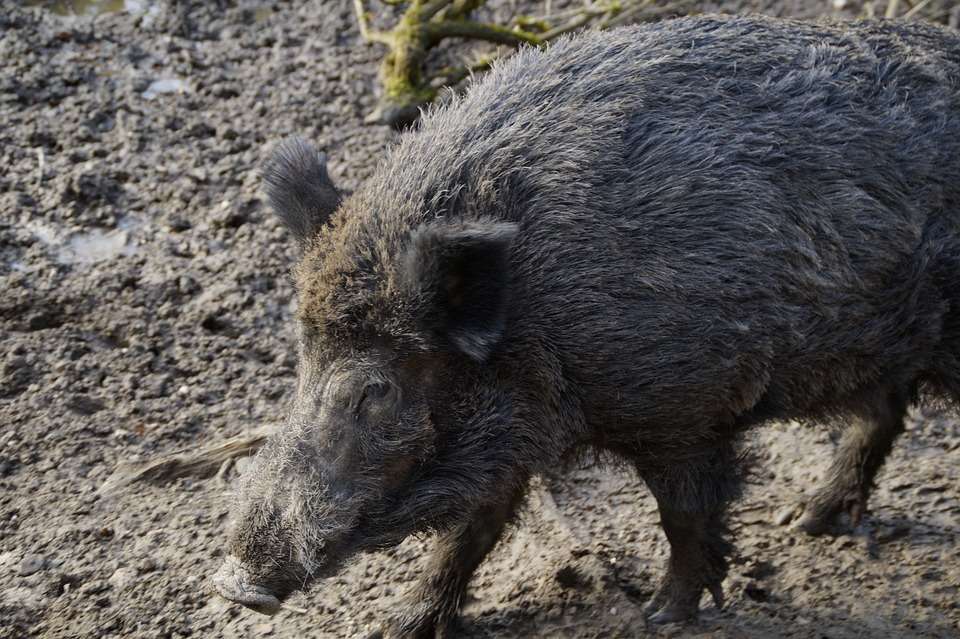Cabbage 'Spills,' Hog-Hunting, and Farm Aid Vetoes: Three Food Policy Stories from the States
A trio of interesting stories aren't making national headlines.


I often write about pressing national food-policy issues like farm subsidies, the FDA's war on added ingredients, and dietary guidelines; key state stories pertaining to food freedom, cottage food laws, and GMO labeling; and local stories like food truck regulations, soda taxes, and restrictions on gardening.
But plenty of interesting stories fly far enough under the radar that I never get a chance to comment on them. That's why I decided this week to focus on a handful of quirky state food-law stories.
Let's start in Hawaii, where, reports West Hawaii Today, the state's Supreme Court just ruled in a case that centered on whether it was proper to fine a farmer for failing to retrieve a handful of cabbage leaves that flew out the back of his truck.
The case began in 2013, when a police officer saw several cabbage leaves fall from a truck owned by farmer Max Bowman. The ticket meant a $250 fine for Bowman. "Vehicles carrying agricultural produce from fields during harvesting shall be exempt from the requirements of this section[,] but the owner of the vehicle must provide for the reasonable removal of all such produce spilled or dropped on the highway," reads the Hawaii statute at issue in the case.
Ultimately, the case hinged on whether Bowman's refusal to risk his life to pick up a few cabbage leaves was "reasonable."
"I feel risk of life and limb, running onto the road, grabbing three or four leaves of cabbage as opposed to letting it decompose naturally does not sound reasonable to me," Bowman had testified before a lower court.
That court—and an appellate court—ruled against Bowman, who represented himself in court. But the state's highest court overturned those decisions, ruling "that it was unreasonable for Bowman to risk 'life and limb' on a busy highway in order to pick up cabbage trimmings, especially if the trimmings posed no threat to the safety of other motorists and would naturally decompose on their own."
Moving on to the issue of wild hogs, we travel to Oklahoma, where a bill would allow a resident to use a spotlight at night to hunt wild pigs without a hunting license. Critics fear the bill would promote poaching of other species. But proponents suggest expanded hunting opportunities will help rein in the state's wild hogs, a huge problem in parts of the American interior.
Much of the problem with the pervasion of wild hogs—Oklahoma estimates there are at least 1.6 million in the state—centers on their ravenous destruction and consumption of crops that were intended to be eaten by people. If wild hogs are eating our food, why not hunt and eat them? In fact, eating invasive species is a popular strategy for limiting or eliminating their numbers.
"We can eat the shit out of [invasive species] because they eat everything in their path and it's a real problem," says chef, author, and television host Ben Sargent, whose alter ego I profiled in a Reason piece in 2011, in comments that appear in my forthcoming book, Biting the Hands that Feed Us. Sargent singled out snakehead fish, an invasive species in the mid-Atlantic states, and one I've eaten and enjoyed thoroughly, noting that it tastes fantastic. He told me we should "fish the crap out of" the snakehead.
While I agree with Sargent, that solution could pose its own challenges. Josh Galperin from Yale Law School has pointed out to me (and, more broadly, in a variety of lectures and publications) that promoting the eating of invasive species can, at least theoretically, have the unintended consequence of creating a self-perpetuating market for those species. That, in turn, can create commercial interest in propagating the species—which runs counter to efforts to eradicate the species via consumption.
He's right. But it's illegal to sell hunted wild game, including wild hogs, in Oklahoma or elsewhere. So the prospect of a market encourage wild hogs to further multiply seems unlikely. One solution to the issues raised by Galperin and the prohibition on sales would be to permit sales of meat from wild hogs but to prohibit them from being captured and raised on farms for sale.
From Oklahoma, we end our journey in South Carolina, where this week Gov. Nikki Haley vetoed a bill that would shovel $40 million in state aid to farmers who've been hit hard by recent floods. Gov. Haley's fantastic veto message scolds farmers for asking the state to bail them out.
"By any measure the current financial support we give to farmers is extraordinary," she writes, "but a vocal industry has asked for more taxpayer dollars to bail them out."
It's rare for a governor—or any federal or state elected official, for that matter—to push back against farmers who demand a taxpayer bailout. While Haley's message passes the buck, noting that federal funds (in the form of taxpayer-subsidized crop insurance, along with other measures) are available to help them deal with flooding, it's heartening to see any politician draw a line in the dirt and to tell farmers that she won't use taxpayer funds to cross that line.
I've no doubt that I'll focus on national issues (say, this one) next week. But a week away from the headlines provided me (and, hopefully, you too) some food for thought.


Show Comments (109)